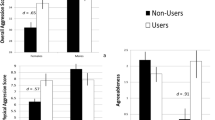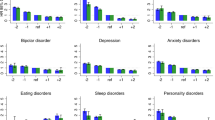Abstract
ONE of the most compelling arguments against illegal drug use, especially by the young, is that it instills in the user an “amotivational syndrome” of apathy, lethargy and loss of motivation in the conventional sense1. The argument assumes that drug use tends to become routine and that the drugs specifically prohibited by law are associated with reduced achievement-oriented behaviour. Given the fact that drug use is currently at an all-time high among the young—and possibly more so among society's talented young than in any other group—these issues deserve empirical exploration. The latest Gallup poll, conducted in December 1970, indicated that in a roughly random sample of American college students, 42% had tried marijuana at least once. Moreover, this was an increase of almost 1% per month from previous surveys.
This is a preview of subscription content, access via your institution
Access options
Subscribe to this journal
Receive 51 print issues and online access
$199.00 per year
only $3.90 per issue
Buy this article
- Purchase on Springer Link
- Instant access to full article PDF
Prices may be subject to local taxes which are calculated during checkout
Similar content being viewed by others
References
McGlothlin, W. H., and West, L. J., Amer. J. Psychiat., 125, 372 (1968).
Lemberger, L., et al., Science, 170, 1320 (1970).
Author information
Authors and Affiliations
Rights and permissions
About this article
Cite this article
GOODE, E. Drug Use and Grades in College. Nature 234, 225–227 (1971). https://doi.org/10.1038/234225a0
Received:
Revised:
Issue Date:
DOI: https://doi.org/10.1038/234225a0
This article is cited by
-
The Association Between Cannabis Use and Perceived Social Support: the Mediating Role of Decreased Social Network
International Journal of Mental Health and Addiction (2022)
-
Cannabis, motivation, and life satisfaction in an internet sample
Substance Abuse Treatment, Prevention, and Policy (2006)
-
Cannabinoid content of some English reefers
Nature (1974)
Comments
By submitting a comment you agree to abide by our Terms and Community Guidelines. If you find something abusive or that does not comply with our terms or guidelines please flag it as inappropriate.



